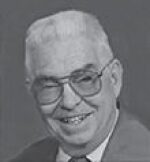
Joseph John (Joe) Taber died 29 December 2016 at the age of 96. He was a Distinguished Member of SPE and the Improved Oil Recovery Pioneer Awardee in 1990 from SPE and the Department of Energy.
The Founder-Director and Director Emeritus of the Petroleum Recovery Research Center at the New Mexico Institute of Mining and Technology in Socorro, New Mexico, Taber led a wide-ranging research effort on methods to improve oil and gas recovery throughout his career. His research led the way for the now well-established field of enhanced oil recovery (EOR) and his work led to eight patents related to EOR processes. He was a professor in the departments of chemistry and chemical and petroleum engineering at the University of Pittsburgh for 22 years.
Taber showed in a series of technical papers and patents how equilibrium phase behavior, low interfacial tension, and adsorption of surfactants interact to determine displacement efficiency in oil-recovery processes. His landmark paper (SPE 2098) concerning capillary desaturation established that displacement of oil trapped in a porous medium by capillary forces occurs when the ratio of pressure gradient to capillary force (as measured by the interfacial tension) exceeds a critical value. That ratio is now known as the Taber number. His research on alcohol flooding, in which an alcohol that is miscible with both oil and water is used to displace oil, showed that displacement performance is strongly dependent on composition path. That observation pointed the way to the design of micellar/polymer recovery processes and miscible gas injection processes, both of which rely on the use of chromatographic separations during flow in the reservoir rock to achieve high displacement efficiency. Taber’s wide-ranging view of EOR is captured in his 1997 SPE papers, Part I and II, “EOR Screening Criteria Revisited,” which have for many years been the most downloaded papers in the OnePetro electronic library. He was also an SPE Distinguished Lecturer during 1989–1990 on the topic “The Outlook for EOR in Changing Economic Conditions.” Taber held a bachelor’s degree from Muskingum University, Ohio, and a PhD in chemistry from the University of Pittsburg.

